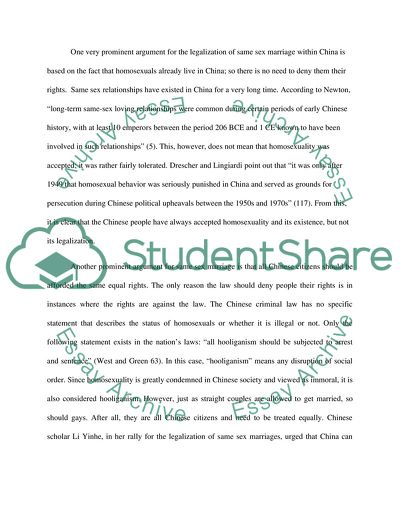Cite this document
(Gay Marriage in China Term Paper Example | Topics and Well Written Essays - 2000 words, n.d.)
Gay Marriage in China Term Paper Example | Topics and Well Written Essays - 2000 words. https://studentshare.org/social-science/1822952-gay-marriage-in-china
Gay Marriage in China Term Paper Example | Topics and Well Written Essays - 2000 words. https://studentshare.org/social-science/1822952-gay-marriage-in-china
(Gay Marriage in China Term Paper Example | Topics and Well Written Essays - 2000 Words)
Gay Marriage in China Term Paper Example | Topics and Well Written Essays - 2000 Words. https://studentshare.org/social-science/1822952-gay-marriage-in-china.
Gay Marriage in China Term Paper Example | Topics and Well Written Essays - 2000 Words. https://studentshare.org/social-science/1822952-gay-marriage-in-china.
“Gay Marriage in China Term Paper Example | Topics and Well Written Essays - 2000 Words”. https://studentshare.org/social-science/1822952-gay-marriage-in-china.


